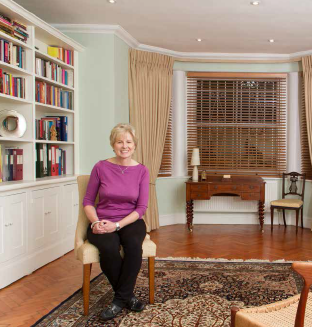How we work
Clinicians at Harley Street Psychology Practice are qualified in the following therapeutic approaches:
Psychoanalytic Psychotherapy
This is a talking therapy that involves a process of exploration undertaken by a therapist and client together to understand the client’s psychological distress in the context of their life experiences.read more...
Childhood experiences and current issues are explored by therapist and client together. This therapy is an interactive process which aims to enable clients to understand the roots of their problems and feelings, to help them alter negative patterns of behaviour, and to improve their ability to live creatively. Clients are required to see a therapist at least once a week. Treatment may be short-term or long-term, depending on the nature of clients’ problems, goals, and progress in therapy. Some clients may choose to focus on a specific issue for relatively short treatment, while others may seek to address difficulties which require more intensive long-term work.
Cognitive Behavioural Therapy (CBT)
CBT is recommended by NICE (National Institute for Health and Care Excellence) as an effective treatment for a range of psychological problems. Designed to be problem-focussed and short-term, the treatment aims to explore the relationship between thoughts, feelings and behaviours.read more...
Feelings and behaviour are viewed as largely a product of a person’s thoughts (cognitions); the therapy aims to help individuals identify unhelpful thoughts and beliefs and to implement strategies to counter them. Clients usually have once-weekly therapy for between six and twelve sessions. CBT can be helpful for treating adults with specific concerns, and for adolescents struggling to understand their own behaviour and interactions.
Family Therapy
Parents and sometimes other family members meet a therapist to consider the family dynamics and practical options for dealing with family matters. The clinician works with adult family members, and may see children on their own.read more...
Treatment helps children with issues such as unhappiness, anger or anxiety arising from school or from relationships with siblings, friends and parents. Individual behavioural work, play therapy and CBT are available for children on a one-to-one basis, and cognitive assessments are available for children and adolescents. In some instances psychologists may be able to carry out a cognitive assessment with children and teenagers.
What to expect
A meeting is arranged either with Dr Karen Ciclitira or Dr Fiona Starr to explore clients’ issues and consider how best to address them. The assessment process may require up to two sessions.
For child assessments Dr Fiona Starr generally meets parents initially without their child or children. Liaison with schools and professionals involved in a child’s care may be required. If the family agrees that they could benefit from parenting and behavioural help at home, they may be referred to Clare Lewis.
After the initial assessment clients will be advised on the most appropriate course of therapy. A regular weekly session for individual therapy lasts 50 minutes, and family and couple sessions take up to 90 minutes.

HSPP takes referrals from GPs, physicians, psychologists, psychiatrists, solicitors, occupational health professionals and Human Resources departments.Individuals may also self-refer to receive an assessment.